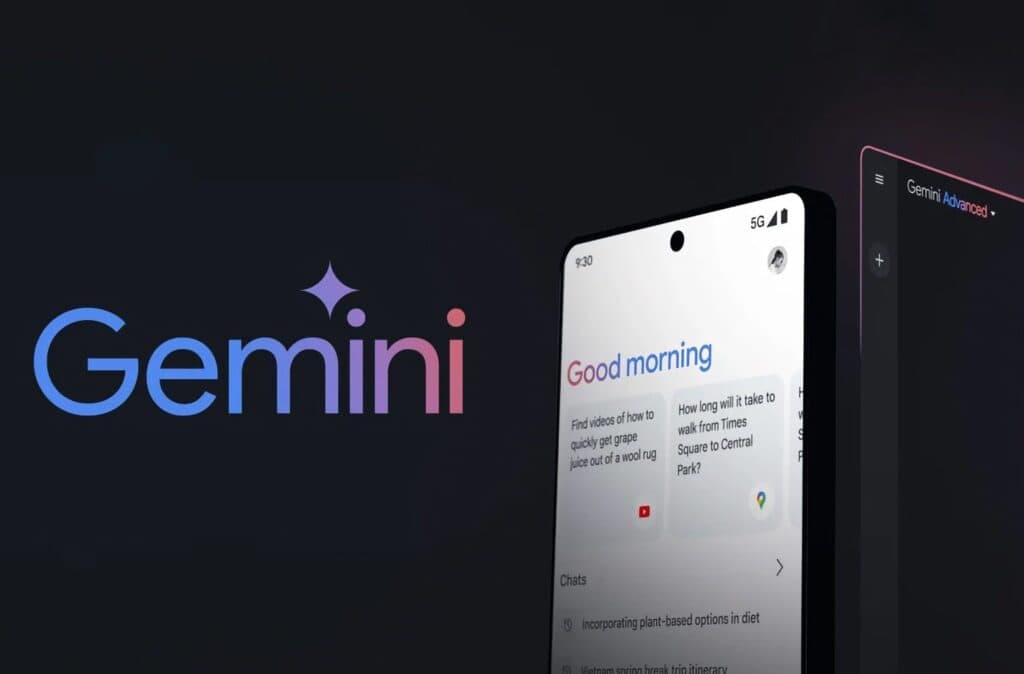Google Introduces Gemini as the Next Evolution in Conversational AI, Replacing Bard Chatbot

Google has introduced its latest AI chatbot, Gemini, as a replacement for the short-lived Bard service. Initially launched as Bard in December, the service faced criticism and was rebranded as Gemini due to its underwhelming performance.
In a strategic move to enhance its conversational AI capabilities, Google has recently unveiled Gemini, a sophisticated chatbot designed to surpass its predecessor, Bard. Launched in December, Bard faced criticism and failed to meet expectations, prompting Google to rebrand and introduce a more advanced and capable successor.
The Journey from Bard to Gemini
Gemini is touted as Google’s “most capable family of models” for natural conversations, with two offerings: Gemini Advanced and a mobile app. Gemini Advanced features access to Ultra 1.0, Google’s proclaimed “largest and most capable state-of-the-art AI model.” In blind evaluations, third-party raters preferred Gemini Advanced with Ultra 1.0 for complex tasks such as coding, logical reasoning, and creative collaboration.
Initially introduced as Bard, Google’s AI chatbot aimed to compete with other prominent chatbots like ChatGPT. Unfortunately, the service fell short during demonstrations, leading to internal dissatisfaction and public critique, with some Google staff even referring to the launch as “botched.”
Gemini Advanced functions as a personalized tutor, generating custom lessons and quizzes, and assisting developers with challenging coding problems. It is designed to inspire ideas and help creators strategize audience growth. Google plans to enhance Gemini Advanced progressively, introducing exclusive features like expanded multimodal interactions, interactive coding, and deeper data analysis.
Gemini's Unique Offerings
Gemini is presented in two distinct experiences: Gemini Advanced and a dedicated mobile app. Gemini Advanced introduces users to Ultra 1.0, hailed by Google as its “largest and most capable state-of-the-art AI model.” In evaluations by third-party raters, Gemini Advanced with Ultra 1.0 outperformed alternatives in complex tasks like coding, logical reasoning, and creative collaboration.
Access to Gemini Advanced is available through the new Google One AI Premium Plan, priced at $19.99 (£18.99) per month, with a free two-month trial. This plan not only includes Gemini Advanced but also offers the latest Google AI advancements and 2TB of storage from the existing Premium plan.
Google asserts that Gemini Advanced underwent rigorous trust and safety checks, including external reviews, to address concerns related to unsafe content and bias. Additional details on these checks are outlined in an updated technical report.
Furthermore, Google has launched mobile apps for Gemini on Android and iOS, enabling users to access basic features on-the-go. These apps are currently available in the US, supporting English conversations, and will expand to Japan and Korea next week, with further expansion to more countries and languages in the future. The long-term vision for Gemini is to evolve into a comprehensive personal AI assistant.
Access to Gemini Advanced is granted through the Google One AI Premium Plan, priced at $19.99 (£18.99) per month, which also includes the latest Google AI advancements and 2TB of storage from the existing Premium plan. The subscription model comes with a free two-month trial, allowing users to experience the full range of Gemini’s capabilities.
To address concerns around safety and bias, Google emphasizes that Gemini Advanced underwent extensive trust and safety checks, including external reviews. An updated technical report (PDF) provides detailed insights into the measures taken to ensure a secure and unbiased user experience.
In addition to Gemini Advanced, Google has launched dedicated mobile apps for Android and iOS, enabling users to access basic Gemini features on-the-go. The apps are currently available in the United States, supporting English conversations, with plans to expand to Japan and Korea next week, followed by further global expansion.
